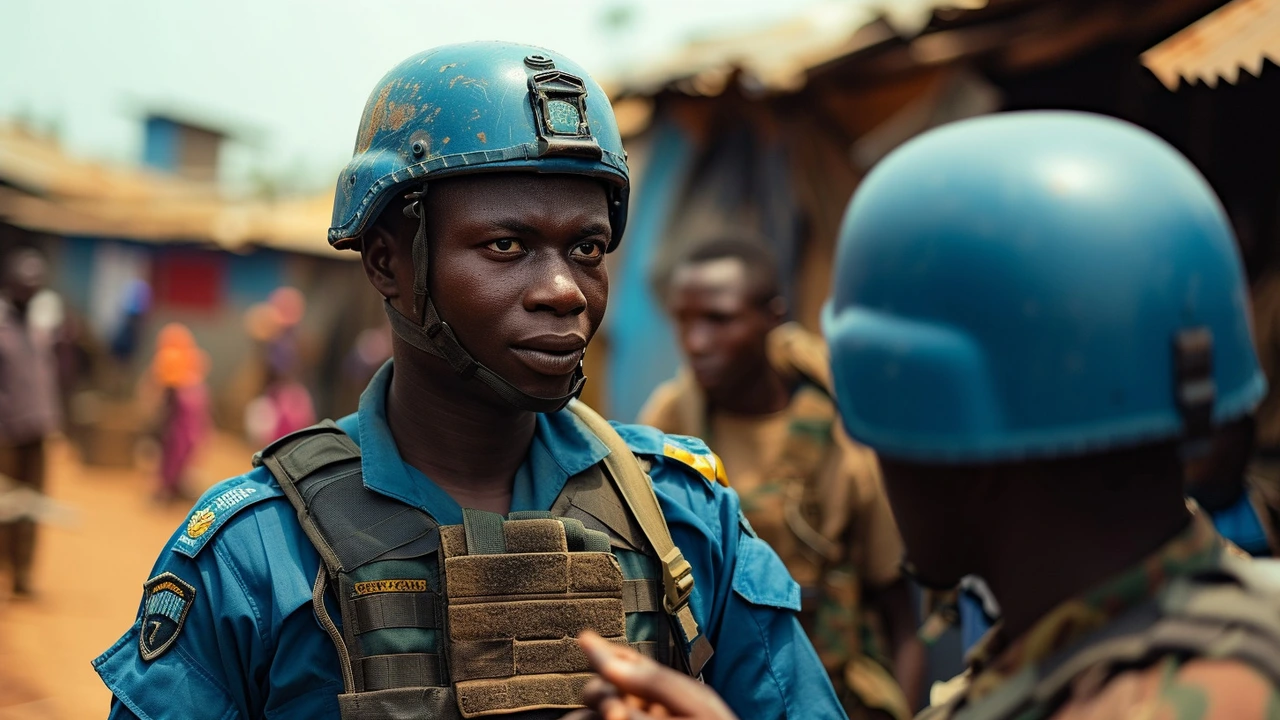More than 100,000 uniformed personnel serve worldwide — but who are international peacekeepers and what do they actually do? If you've ever seen blue helmets on the news, you know they're not soldiers trying to win; they're there to reduce violence, protect civilians and support political solutions. I’ll explain the roles they play, the common challenges they face, and how you can follow or support real missions without getting lost in jargon.
Peacekeepers come from many countries and bring police, military and civilian skills. On most missions they patrol conflict lines, set up checkpoints, escort humanitarian aid, train local police, and monitor ceasefires. They gather information that helps negotiators, and they create safe spaces for elections or aid distribution. Simple actions — like fixing a bridge or running a school program — can make a mission stick because they rebuild trust between communities.
Success depends on clear mandates, enough resources, and local buy-in. A strong UN or regional mandate gives peacekeepers the legal tools they need. But even with authority, missions struggle when countries delay funding, troops lack proper equipment, or when local leaders don’t want outside help. Corruption, mixed rules of engagement, and foggy exit plans doom many efforts. The missions that last are those that plan for politics, not just patrols.
Think of peacekeepers in the Balkans who supervised ceasefires after wartime atrocities, or those who protected civilians during sudden outbreaks in Africa. In Haiti, peacekeepers supported elections and helped restore public services after disasters. These are messy, often dangerous jobs where small humanitarian wins add up.
Troops now receive training on human rights, gender-based violence response, and cultural sensitivity. New tech — drones, secure communications, and data mapping — improves safety and situational awareness. But tech alone isn't enough; accountability matters. Transparent reporting, independent investigations, and community feedback loops keep missions focused and reduce harm.
Common misconceptions hide the human side of missions. Peacekeepers are not neutral machines — they are people who deal with stress, moral dilemmas, and long separations from family. Many missions now include mental health teams and peer support to reduce PTSD and burnout. Countries that contribute troops vary from small states to major powers, and funding often comes with political strings. If you see a headline blaming peacekeepers, look for official reports and eyewitness accounts before judging. Holding missions accountable does not mean rejecting them; it means demanding better standards. Ask tough questions and read mission data.
If you want to follow missions, use official UN mission pages and trusted NGOs for updates. Donate to organizations that support returning peacekeepers or help civilians in mission areas. Share verified stories—good and bad—to push for policy changes. Even simple actions like voting for informed foreign policy matter.
International peacekeepers are a diverse group working on the frontlines of fragile peace. They need clear mandates, strong local partnerships, proper training, and accountability to be effective. Want to learn more? Bookmark credible mission reports and follow journalists who cover peace operations closely.

Hey there everyone, I'm just really excited to talk about something that's super close to my heart – the varied faces of peacekeeping. Honestly, it's quite incredible how these brave individuals come from all corners of the globe, each with their own unique backgrounds, experiences, and perspectives, you know? They sort of band together, united by this common purpose to maintain peace and security. Reflecting on their stories, I've noticed it's not just about the military aspect; it involves civilians, police, and other specialists as well. Strangely enough, peacekeeping has a lot of layers to it, kind of like an onion, and together, they're making a difference in hotspots worldwide. It's like this tapestry of commitment, culture, and courage that really resonates with me, and I can't wait to share more with you guys in the post.
